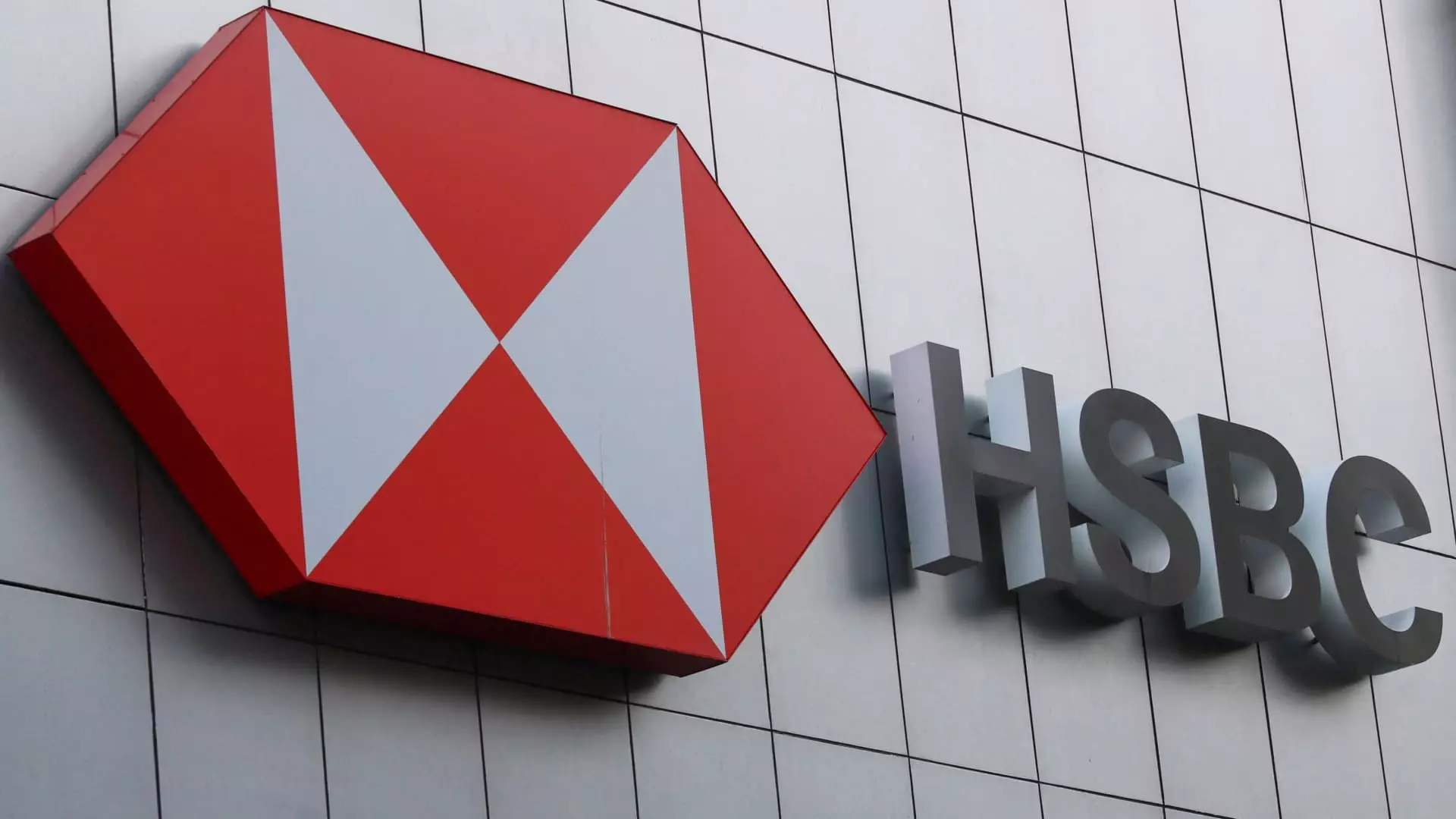HSBC, recognized as Europe’s largest banking institution, recently reported its annual pre-tax profits for the year, revealing a modest increase of 6.5%. The bank’s performance was notably buoyed by its strategic divestiture of its Canadian banking operations, a move that underscores its focus on optimizing its global business footprint. In comparison to the prior year, HSBC’s revenue decreased slightly from $66.1 billion to $65.85 billion, indicating the challenges that the institution faced in maintaining revenue growth amid a fluctuating economic landscape.
Analyzing the provided data against the LSEG mean estimates, HSBC’s pre-tax profits registered at $32.31 billion, which fell short of analysts’ projections of $32.63 billion. This discrepancy, albeit minor, highlights the ongoing challenges within the banking sector, where even slight fluctuations can have significant ramifications. Nonetheless, the reported profit outstripped internal consensus estimates, suggesting a degree of resilience within the bank’s operations.
Examining the fourth quarter specifically, HSBC managed to nearly double its profit before tax compared to the same period the previous year, hitting $2.3 billion. Last year’s performance, however, was marred by a substantial impairment charge of $3 billion, illustrating the bank’s prior struggles. Unfortunately, revenue for this quarter experienced a more substantial decline, dropping by 11% and reflecting the ongoing economic pressures that could impact future profitability.
In response to these financial challenges, HSBC has initiated plans to engage in a significant share buyback valued at up to $2 billion, a move anticipated to complete by the end of the first quarter of 2025. This buyback aligns with current market expectations, reinforcing the strategy to enhance shareholder value while also signaling confidence in the bank’s long-term prospects.
To supplement its profitability, HSBC has announced an ambitious cost-cutting initiative targeting an annual reduction of $1.5 billion by 2026. These reductions are crucial for sustaining profitability, especially as the bank forecasts a contraction in net interest income from $43.7 billion in 2024 to $42 billion by 2025.
The recent earnings report marks the first full year since the appointment of Georges Elhedery as CEO, following the departure of Noel Quinn. Under Elhedery’s leadership, HSBC is undergoing substantial transformations, seeking to streamline operations into four distinct units that appeal specifically to Eastern and Western markets. This shift aims to create a more agile and focused banking institution, built on core strengths that align with its strategic vision.
Moreover, the recent layoffs of approximately 40 investment bankers in Hong Kong point to a consolidation strategy, particularly affecting the M&A, consumer, and real estate sectors. Such decisions, while difficult, reflect the bank’s responsive measures to current market demands and internal efficiency goals.
HSBC’s recent financial performance reveals a bank actively engaged in navigating through headwinds while positioning itself for future stability and growth. In an era where adaptability is paramount, HSBC’s strategic focus on cost management and business restructuring will be pivotal in its quest to enhance both shareholder value and market resilience.

